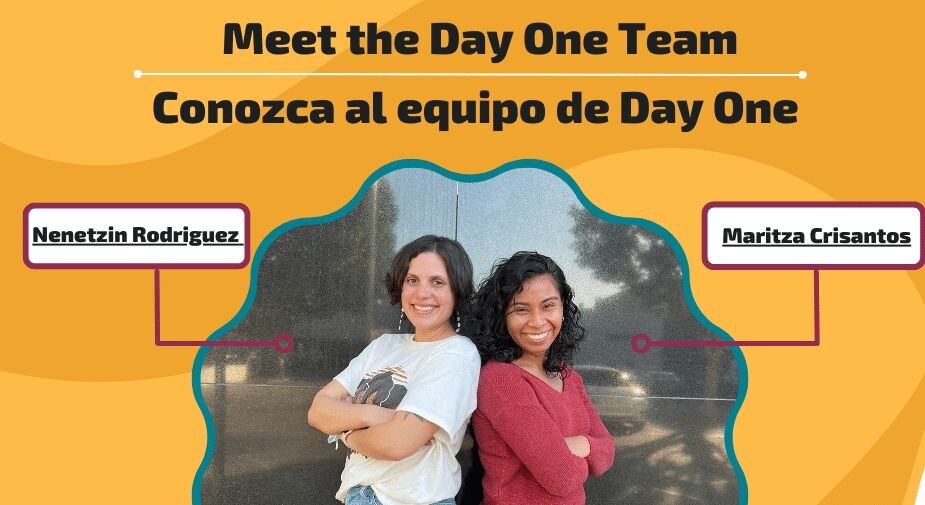The Challenges Of Educating Homeowners On Energy-Efficient Appliances
When the Bassett Avocado Heights Advanced Energy Community (BAAEC, pronounced BAYSEA) pilot program kicked off in 2017, the focus was to get community input, collect data, and understand the community members’ interest in energy efficiency amenities.
The Advanced Homes program is for homeowners that are seeking to move to an all-electric energy system, including solar panels, battery storage units, and heat water pump heaters that will lower their electric bills and provide a more sustainable source of energy for the community.
The project, now in its fifth year, has found that while homeowners in Bassett & Avocado Heights are interested in moving to electric, there continue to be obstacles in between them and energy-efficient homes.

Nenetzin Rodriguez is the Project Director at Day One, an organization working to create equitable programs for underserved communities in the San Gabriel Valley. As the organization tasked with enrolling residents, they set out to talk with community members who might fit the qualifications.
CHALLENGE 1: INTEREST PAIRED WITH HESITANCY
“This is a diverse community that has been historically underserved and has suffered in terms of environmental justice,” Nenetzin says. “This community has already been approached by for-profit solar companies that have taken advantage of some of these community members, so they were a little skeptical of us. So we need to meet them where they are.”
After the pandemic, “we had to relearn the community, get to know new partners, and understand the current barriers they are facing,” Nenetzin said. “So much had changed from 2017 to 2020, and even 2020 to 2022, where we are now because things have changed because of the pandemic.”
When reaching out to community members, the Day One team tells them about the exciting project happening in their community — stressing that it is completely free and funded by the state of California.
The strategy that worked the best to reach residents was partnering with the Bassett Unified School District for PTA meetings and parent meetings, where the principals and administrators were able to vouch for the legitimacy of the pilot program.
“It’s crucial to have that trust, k, especially with the families in the Spanish-speaking community,” said Maritza Crisantos, the Community Engagement Coordinator at Day One who was working with Spanish-speaking families.
CHALLENGE 2: ENROLLMENT AND ELIGIBILITY
To qualify for this program, residents have to meet certain eligibility requirements, which include an income bracket, qualifying for public assistance, owning the home, roof condition, and following county ordinances.
Because the infrastructure of a home does make a difference in terms of whether families qualify, Nenetzin says that more funding is crucial to ensuring equitable access to electric updates.
“If we’re trying to get lower-income communities or underserved communities as part of this electrification of homes, we need to help them with their repairs of the homes that they’re in,” she says. “It’s very costly to repair the roof or other infrastructure of your homes, and the only thing holding some homeowners back is their roof condition.”
Nenetzin and Maritza advocated for additional funding to support these repairs — and they got it. Thanks to their requests, repairs in 10 homes will now be funded as part of the program.
“When families don’t have the means to cover it themselves, we don’t want to leave them out of the electrification process,” Nenetzin says. “We still need to get more funding for those types of services because there are a lot of old homes in LA County. So we need to build more funding into new projects — and even current projects.”
NEXT STEPS: ENROLLING FAMILIES AND ADVOCATING FOR THEM
Because the Bassett & Avocado Heights community is a family-oriented, multi-generational community, residents are planning to stay in their homes for the long term, and electrification provides significant cost savings over time.
The program is only enrolling 50 homeowners, which provides incentive for community members to see if they qualify. Once they are accepted, enrolled, and the energy-efficient changes are implemented, families will see a reduction in the electricity bill.
So far, the program has seen over 50 residents apply. Unfortunately, some of the residents aren’t eligible — mostly because of the roof requirements — but they are never turned away from support entirely.
“We never turn homeowners away because even if they don’t meet requirements for the Advanced Homes program, they can qualify for other programs,” Nenetzin says. “We connect them with other programs they’re a fit for and make sure that they’re always getting some type of services, even if it’s not Advanced Homes.”
“We’re community advocates first,” Maritza says. “We’re here to listen to the families and hear their stories; then we’re the liaisons to city officials and decision-makers. We’re the storytellers for this community.”